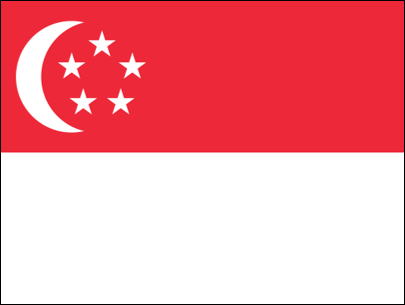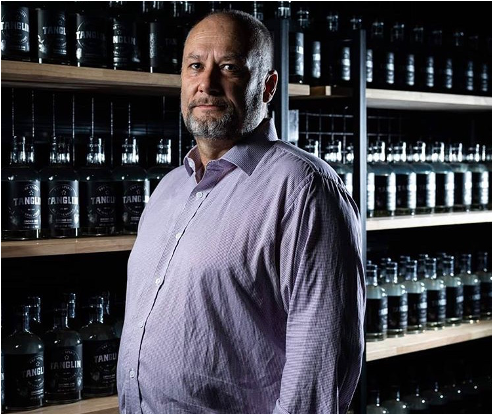Singaporean Gin & Distilleries in Singapore
On This Page: Singaporean Gin and Distillery directory, reviews and tasting notes, distillery tours in Singapore, interviews with Singaporean distillers, and industry insights with Tim Whitefield of Tanglin Gin.
|
Singapore is home to the Singapore Sling, a gin based cocktail created in the early 1900s. The country a lot of historical connections to gin due to transportation of spices, including clove and nutmeg which were introduced to the island by Sir Stamford Raffles in 1822. Nonetheless, the first gin distillery in Singapore was only opened in 2018.
|
Singaporean Gin Reviews - A to Z
- Tanglin Orchid Gin - Info & Review | Buy / Garnish: Orange or Ginger
For more Singaporean gins try Brass Lion Gin, Rojak Gin, Singapore Distillery Gin, Soulsister Gin, The Orientalist Gin
SINGAPOREAN GIN FACT!
- Singapore is home to the infamous Singapore Sling! The gin based cocktail was created sometime before 1915 by Ngiam Tong Boon, who was bartender in the Long Bar in the Raffles Hotel, Singapore. The cocktail comprises two measures of gin with one of cherry brandy and one each of orange, pineapple, and lime juice.
Distilleries & Tours in Singapore
Some distilleries in Singapore are open for tours and/or tastings, and they are wonderful experiences for gin lovers living in or visiting these areas:
- Brass Lion Distillery
- Tanglin Distillery
Meet the Makers
Get to know some of India's finest gin creators and distillers in our 'Meet the Maker' interviews. Find out what inspired them and how they created and launched their gin, how it's made, what botanicals are used, what you can experience if you visit their distilleries, how best to serve their gins and what they have planned for the future:
The Inside Scoop
We caught up with Tim Whitefield of Tanglin Gin in Singapore, to find out what makes Singaporean Gin special and how the industry has grown in recent years:
What is Singapore's history with spirits and distilling?
Tim: The original island of Singapore was inhabited by fishermen and a few pirates up until 1818, when Sir Stamford Raffles was sent to acquire a port to facilitate strategic trading along the spice route. And, after a spot of marine surveying he chose Singapore. The trading port was important for a range of spices many of which would have ended up in some of the fine gins being produced in England at the time.
Singapore quickly grew as a trading port and its population increased significantly, and along with that came alcohol. There are some reports of a distillery being set up in the 1800's, but long forgotten. From the 1930's to the 1980's Singapore was making an illicit type of moonshine called samsu - a spirit of sorts, secretively made in the jungle and rural areas. Samsu was made by mixing parboiled rice, brown sugar and yeast with water to form a mash. It was then stored in containers and allowed to ferment. The fermentation process would normally take between four to six days. However, the process would take a week if the containers were buried underground.
Fast forward to 2018, 200 years after modern Singapore was founded by Raffles, Tanglin Gin opened Singapore's first Gin Distillery and carved a path for others to follow.
How has the Singaporean Gin industry developed in recent years?
Tim: Since Tanglin established the first Gin Distillery in 2018, we have seen a number of other distilleries and contract gins follow. There are now three Gin distilleries and two other brands, one made in London and another made by one of the local distillers. One of the great things about the establishment of the new gins is seeing this evolution of a whole new industry for Singapore. This of course brings opportunities and challenges. One of the exciting developments has been seeing the interest in distilling as a potential career, our distillery team under Tim's direction is lead by Elaine Lee, a food scientist who is truly bringing the 80% science to the 20% art of gin making.
Its been inspiring to see a brand new industry only three years old secure international medals for the gins produced. Winning back to back Best Traditional Gins 42% and above with your awards category was fantastic. In 2021 we also secured back to back double golds and best in class at San Francisco and also secured Best Spirit in Asia with a Taste Master award. We are unashamedly proud of the quality of what we produce.
What makes Singaporean Gin different / special?
Tim: We believe the quality of Tanglin's Gin's originate in the French concept of ‘Terroir’. Our gins have unique aspects that influence the flavour profile, meaning it can't be replicated anywhere else.
1. Climate – With consistent daily temperatures and a very small diurnal range.
2. Climate – Consistent high humidity, we don't bounce from summer to winter temperatures like Europe and the US, which impacts on flavour.
3. Geography – We’re on an Island, with high and consistent levels of salt in the air.
4. Terrain – Close to sea level. Altitude changes the boiling temperature of alcohol.
What's next for the gin industry in Singapore?
Tim: World domination..... Seriously though, Tanglin Gin's horizon has always been global. The size of the market in Singapore is relatively small, and to be a sustainable gin brand we had to think internationally from the outset. The importance of the export markets is vital. We are growing with a strong following in the US, we have established early market entry into HK, Malaysia and Canada and we have a great fan base in the UK. But, we are still looking for a distributor, its a similar story in Australia, and the Dragon China is just there as a huge market opportunity.
On home soil, we are relocating the distillery to a new home in vibrant Dempsey Hill, an amazing location right in the heart of Tanglin next to the World Heritage Listed Botanic Gardens, very popular with locals and tourists, this will bring Tanglin Gin home to Tanglin. The new distillery, located on at the edge of remnant jungle will allow us to expand everything we do. More distilling capacity, a dedicated and unique front of house gin experience centre that will support the tours, and gin education we already offer.
Beyond our own brand we see a bright future for more growth in the industry generally, potentially more gin distillers and other spirits will growing. What we hope is that the local FNB (food and beverage production) market will understand that they can offer something genuinely local of really high quality.
What is Singapore's history with spirits and distilling?
Tim: The original island of Singapore was inhabited by fishermen and a few pirates up until 1818, when Sir Stamford Raffles was sent to acquire a port to facilitate strategic trading along the spice route. And, after a spot of marine surveying he chose Singapore. The trading port was important for a range of spices many of which would have ended up in some of the fine gins being produced in England at the time.
Singapore quickly grew as a trading port and its population increased significantly, and along with that came alcohol. There are some reports of a distillery being set up in the 1800's, but long forgotten. From the 1930's to the 1980's Singapore was making an illicit type of moonshine called samsu - a spirit of sorts, secretively made in the jungle and rural areas. Samsu was made by mixing parboiled rice, brown sugar and yeast with water to form a mash. It was then stored in containers and allowed to ferment. The fermentation process would normally take between four to six days. However, the process would take a week if the containers were buried underground.
Fast forward to 2018, 200 years after modern Singapore was founded by Raffles, Tanglin Gin opened Singapore's first Gin Distillery and carved a path for others to follow.
How has the Singaporean Gin industry developed in recent years?
Tim: Since Tanglin established the first Gin Distillery in 2018, we have seen a number of other distilleries and contract gins follow. There are now three Gin distilleries and two other brands, one made in London and another made by one of the local distillers. One of the great things about the establishment of the new gins is seeing this evolution of a whole new industry for Singapore. This of course brings opportunities and challenges. One of the exciting developments has been seeing the interest in distilling as a potential career, our distillery team under Tim's direction is lead by Elaine Lee, a food scientist who is truly bringing the 80% science to the 20% art of gin making.
Its been inspiring to see a brand new industry only three years old secure international medals for the gins produced. Winning back to back Best Traditional Gins 42% and above with your awards category was fantastic. In 2021 we also secured back to back double golds and best in class at San Francisco and also secured Best Spirit in Asia with a Taste Master award. We are unashamedly proud of the quality of what we produce.
What makes Singaporean Gin different / special?
Tim: We believe the quality of Tanglin's Gin's originate in the French concept of ‘Terroir’. Our gins have unique aspects that influence the flavour profile, meaning it can't be replicated anywhere else.
1. Climate – With consistent daily temperatures and a very small diurnal range.
2. Climate – Consistent high humidity, we don't bounce from summer to winter temperatures like Europe and the US, which impacts on flavour.
3. Geography – We’re on an Island, with high and consistent levels of salt in the air.
4. Terrain – Close to sea level. Altitude changes the boiling temperature of alcohol.
What's next for the gin industry in Singapore?
Tim: World domination..... Seriously though, Tanglin Gin's horizon has always been global. The size of the market in Singapore is relatively small, and to be a sustainable gin brand we had to think internationally from the outset. The importance of the export markets is vital. We are growing with a strong following in the US, we have established early market entry into HK, Malaysia and Canada and we have a great fan base in the UK. But, we are still looking for a distributor, its a similar story in Australia, and the Dragon China is just there as a huge market opportunity.
On home soil, we are relocating the distillery to a new home in vibrant Dempsey Hill, an amazing location right in the heart of Tanglin next to the World Heritage Listed Botanic Gardens, very popular with locals and tourists, this will bring Tanglin Gin home to Tanglin. The new distillery, located on at the edge of remnant jungle will allow us to expand everything we do. More distilling capacity, a dedicated and unique front of house gin experience centre that will support the tours, and gin education we already offer.
Beyond our own brand we see a bright future for more growth in the industry generally, potentially more gin distillers and other spirits will growing. What we hope is that the local FNB (food and beverage production) market will understand that they can offer something genuinely local of really high quality.




